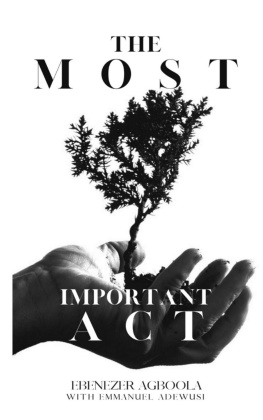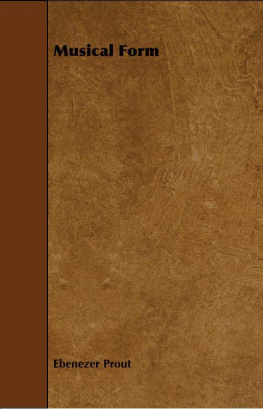Penguin Books
The Book of Ebenezer Le Page
'The mere thought of having a public image appals me': so Gerald Edwards wrote in a letter to his friend, Edward Chaney. Before his death in 1976 he destroyed all 'fragments, correspondence and records', except for his birth certificate and a photograph of his mother.
Born in 1899 Gerald Basil Edwards was the son of a quarry-owner in the north of Guernsey. He wrote of his early life: 'My boyhood, adolescence and young manhood was an increasingly intense fight to the death against my mother; and indeed all my relationships with women have been a fight to the death. I survive, but in grief; for I have sympathy with what I fight against, and sorrow at the necessity.' Edwards was married and had four children but the marriage broke down in 1933. As a child he won a scholarship from the Hautes Capelles primary to the States Intermediate School. In 1914 he was made a pupil-teacher at Vauvert School, St Peter Port. He joined the Royal Guernsey Light Infantry in 1917 but never saw active service. He ended the war in Portsmouth as a sergeant instructor of gunnery. From 1919 to 1923 he studied at Bristol University but neither subject nor degree can be traced. During the 1920s he worked at Toynbee Hall in London and also joined the Workers' Educational Association as a lecturer in English literature and drama. At some point in the 1920s he got to know Middleton Murray and through him met Frieda Lawrence. Where or how he spent the years following the breakdown of his marriage is not known; but during the Second World War he worked in an employment exchange and seems to have remained a civil servant until retirement in 1960. He then went to 'live rough' in Wales for a year; from 1961, he spent three years in Penzance; from 1964, three years in Plymouth; and in 1967he moved on to Weymouth. He wrote in 1972: 'I live from day to day at the edge of living.' He spent the last years of his life as a virtual recluse, living in a house outside Weymouth until his death on 29 December 1976.
G. B. EDWARDS
The Book of Ebenezer Le Page

Penguin Books
Introduction by John Fowles
Penguin Books Ltd, Harmondsworth, Middlesex, England Penguin Books, 625 Madison Avenue.New York, New York 10022, U.S.A. Penguin Books Australia Ltd, Ringwood, Victoria, Australia Penguin Books Canada Ltd, 2801 John Street, Markham, Ontario,
Canada L3R1B4 Penguin Books (N.Z.) Ltd, 182-190 Wairau Road, Auckland 10, New Zealand
First published by Hamish Hamilton 1981 Published in Penguin Books 1982
Copyright Edward P. de G. Chancy, 1981 Introduction copyright J. R. Fowles Ltd, 1981 All rights reserved
Printed and bound in Great Britain by Cox & Wvman Ltd, Reading
Set in Unotron Sabon by Rowland Pfcototypesetting Ltd Bury St Edmunds, Suffolk
Local names are used in this book; but, apart from some topographical features and a few peripheral figures who play no very active part in the story, these, are not to be identified with places or persons of those names, or any others, existing on the Island of Guernsey at any time. A note on spoken and written Guernsey English and a Glossary of the French patois of Guernsey appear on pages 483-7 and 488-90.
Except in the United States of America, this book is sold subject to the condition that it shall not, by way of trade or otherwise, be lent, re-sold, hired out. or otherwise circulated without the publisher's prior consent in any form of binding or cover other than that in which it is published and without a similar condition including this condition being imposed on the subsequent purchaser
Sarnia Cherie
Sarnia, dear Homeland, Gem of the sea,
Island of Beauty, my heart longs for Thee,
Thy voice calls me ever in waking, or sleep,
Till my Soul cries with anguish, my eyes ache to weep.
In fancy I see Thee again as of yore,
Thy verdure clad hills, and Thy wave beaten shore,
Thy rock sheltered bays, ah; of all Thou art best,
I'm returning to greet Thee, Dear Island of Rest.
I left Thee in anger, I knew not Thy worth,
Journeyed afar, to the ends of the earth,
Was told of far countries, the heaven of the hold,
Where the soil gave up diamonds, silver and gold.
The sun always shone, and 'Race' took no part,
But Thy cry always reached me, its pain wrenched my heart,
So I'm coming home, Thou of all art the best,
Returning to greet Thee, Dear Island of Rest.
Chorus
Sarnia Cheri e,
Gem of the sea,
Home of my childhood,
my heart longs for Thee,
Thy voice calls me ever, forget
Thee I'll never,
Island of Beauty,
Sarnia Cherie.
G.A. Deighton
Introductio n
by
John Fowles
There may have been stranger recent literary events than the book you are about to read, but I rather doubt it. It is first of all posthumous, since the author, born a year older than the century, died in 1976. Then it is an only novel, seemingly not begun until he was in his late sixties. Even without those oddities, its voice and method are so unusual that it belongs nowhere on our conventional literary maps. Such a writer might at least have enjoyed the thought of a little personal publicity beyond the grave? Not at all: he made very sure before he died that any future biographer would have an exceedingly hard time of it. Mr Edward Chaney has kindly let me see a series of letters Gerald Edwards wrote to him in his last years. They tell us a good deal of the psychology and character of the man, and even something of his family background; but of his own history, next to nothing.
So far as we know it was not until 1974 that Edwards made (through Mr Chaney, to whom he gave the copyright) any attempt to have The Book of Ebenezer Le Page published. He bore th e rejections it then received with an at least outward patient obstinacy. He more than once likened his stubbornness to that of a donkey; but this was a wise and well-read donkey, a very long way from being the innocent that a surface view of his book might suggest. He knew very well that it no more fitted contemporary literary taste (what in one of his letters he called 'helicopter thinking', judging everything 'from a superior height') than a furzebush does a greenhouse. If I cannot think much of the judgement of the various eminent London publishers who turned the typescript down in the mid 1970s, at least I can understand why they all seem to have had trouble explaining the rejection. What had landed in their nets was a very strange fish - and one, I suspect, that on a quick reading it was only too easy to place in a wrong literary species, that of the provincial novel.
I think myself that it is no more properly classifiable so than Flora Thompson's famous trilogy, Lark Rise to Candleford. Of course any book whose ground is the dose observation of a small community risks this damning label of 'provincial'. Yet even if Edwards' account of the life and times of one Channel Islander had to be thus valued, it would still seem to me a remarkable achievement. If Guernsey feels that it has, since Victor Hugo's famous fifteen years of exile there, been rather left out in the literary cold, it need worry no more. It now has a portrait and memorial that must surely become a classic of the island.
But what Edwards does, as readers will soon realize, is to extend the empire of the book well beyond the confines of one particular island. All small islands conform their inhabitants in markedly similar ways, both socially and psychologically. On the credit side there is the fierce independence, the toughness of spirit, the patience and courage, the ability to cope and make do; on the debit, the dourness, the incest, the backwardness, the suspicion of non-islanders ... all that we mean by insularity. None of these qualities and defects is special to islands. One might argue that the 'island syndrome' occurs with increasing frequency in many of our embattled inner cities, and very much in the context of what finally becomes the major theme of this book that is, the impact of new values on old ones, of ineluctable social evolution on individual man.










